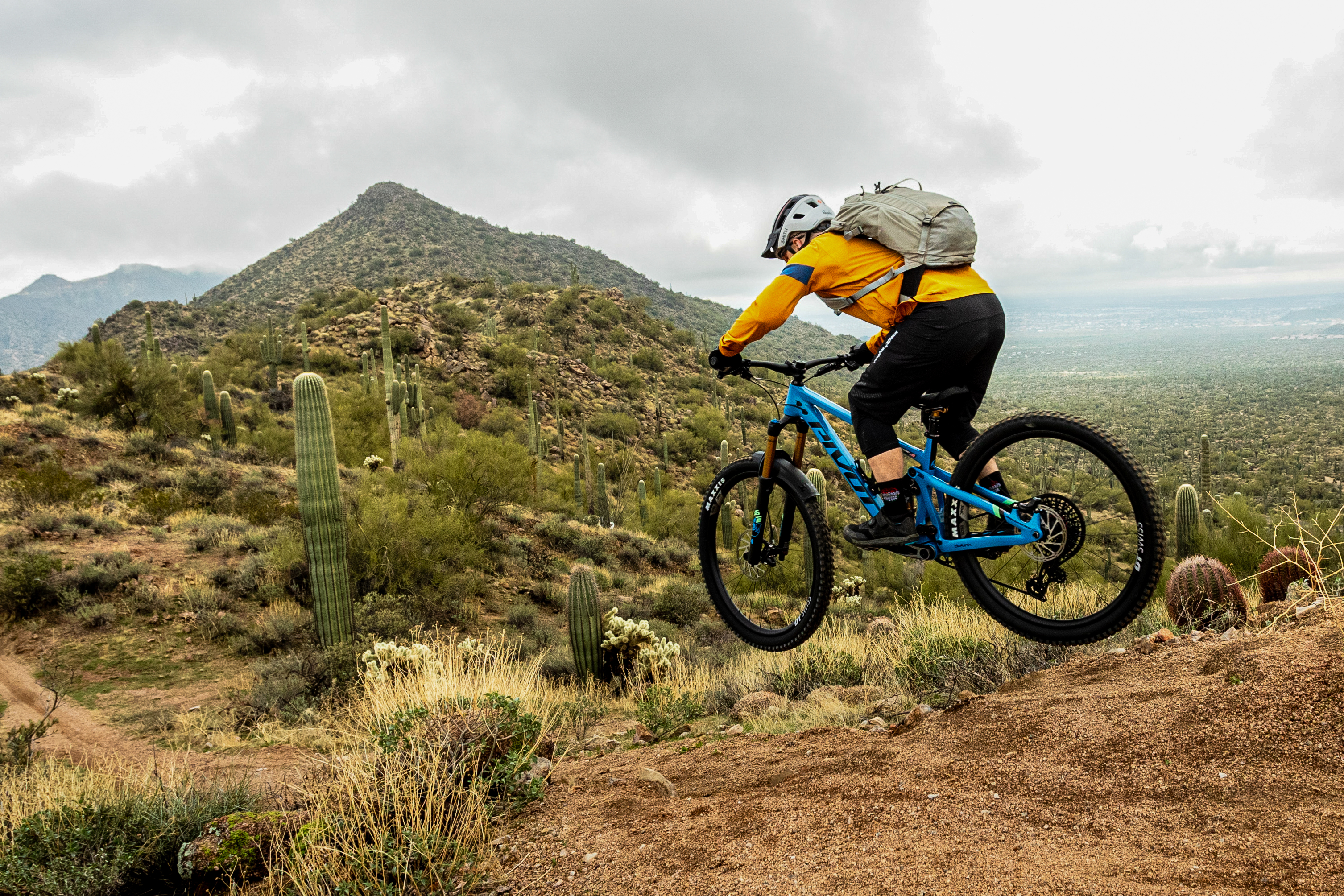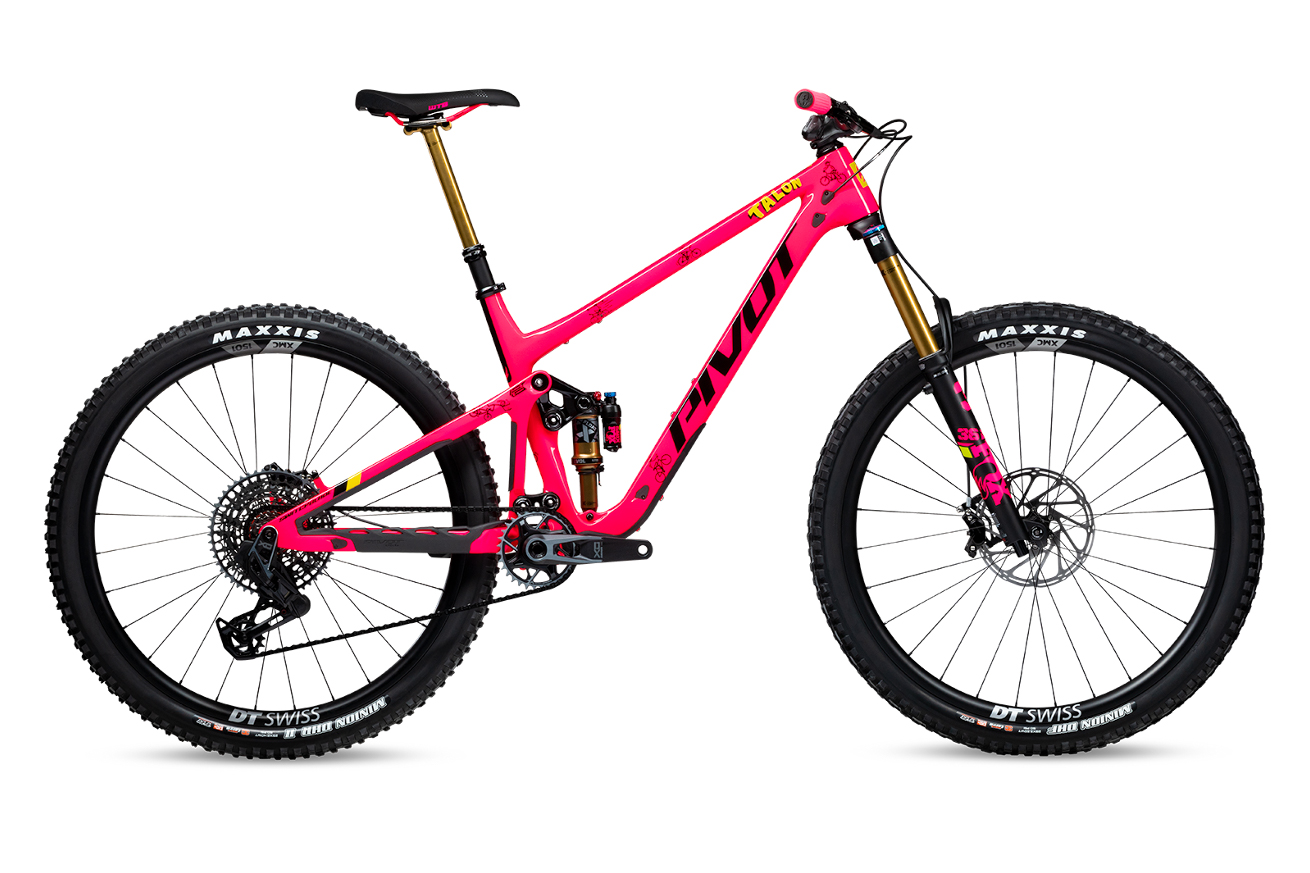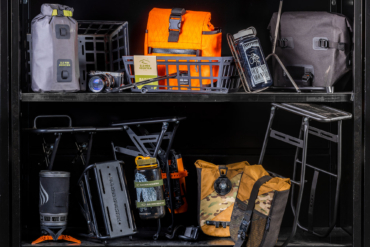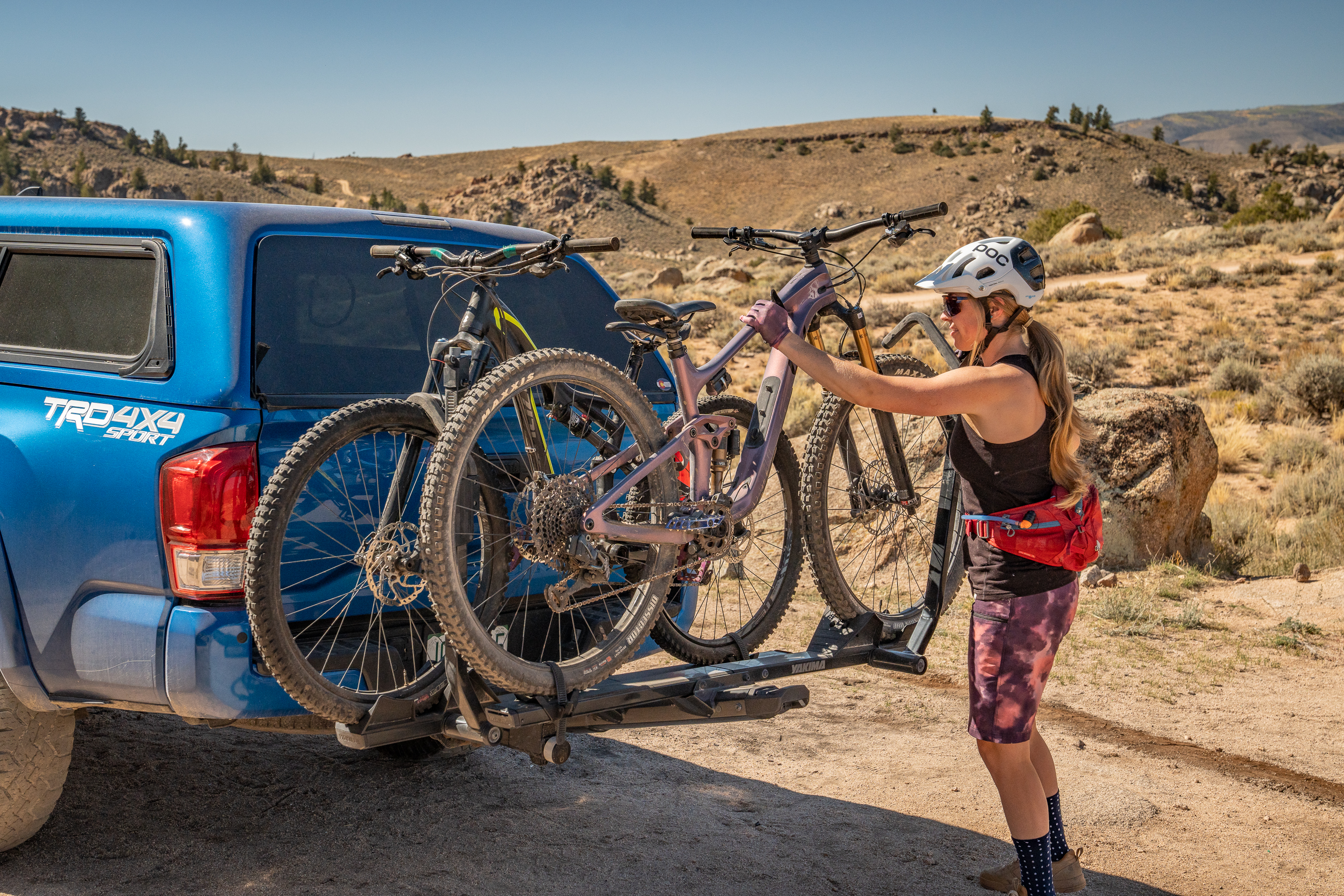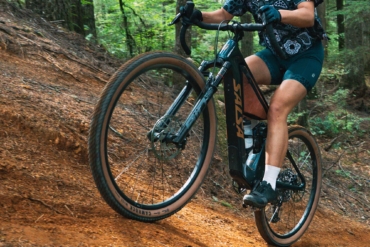By this point, you probably know that Pivot has a new Switchblade. Unsure of what to expect from a bike relaunched only a few years ago, I dumped all my rain gear into a bag and headed to Phoenix.
After a factory tour attempted to delay the inevitable, we set off for our first of two rides straight from Pivot’s headquarters in Tempe to its local testing grounds — South Mountain. The skies looked promising, and as we pedaled the new Switchblade up the mountain, I could start focusing on the bike. Pivot granted me the Pro XO with carbon wheels version, which has an MSRP of $9,899.
In short: The new Pivot Switchblade climbed, descended, and handled everything thrown at me remarkably well. From wet and tricky descents to tight, switchbacked climbs and everything in between, this bike proved that a single-bike quiver is possible. I’ve ridden all the Pivot Switchblade versions, and this is the best one yet.
This article was originally published on BikeRumor.
- Frame material: Hollow core carbon in XS, S, M, LG, XL
- Fork: Fox Factory 32, 44mm offset, Grip 2, 160mm
- Shock: Fox Factory Float X
- Drivetrain: SRAM XO 12-speed, 10-52t
- Brakes: SRAM Code RSC 4-piston, SRAM Centerline rotors 200mm/180mm
- Wheels: 29" DT Swiss XMC1501 w/DT Swiss 240 hub 36t Star ratchet
- Tires: Maxxis Minion DHF 29" x 2.5"/Maxxis Minion DHRII 29" x 2.4"
- Seat post: Fox Factory Transfer 125mm on XS, 150mm on S, 175mm on M, 200mm on LG-XL
Pros
- Chassis was capable across a wide range of conditions and terrain
- Chassis was easy to get comfortable on
- Great component spec
- Improvements on an already proven platform
Cons
- No internal storage
- Pricey
Pivot Switchblade: First Ride Impressions
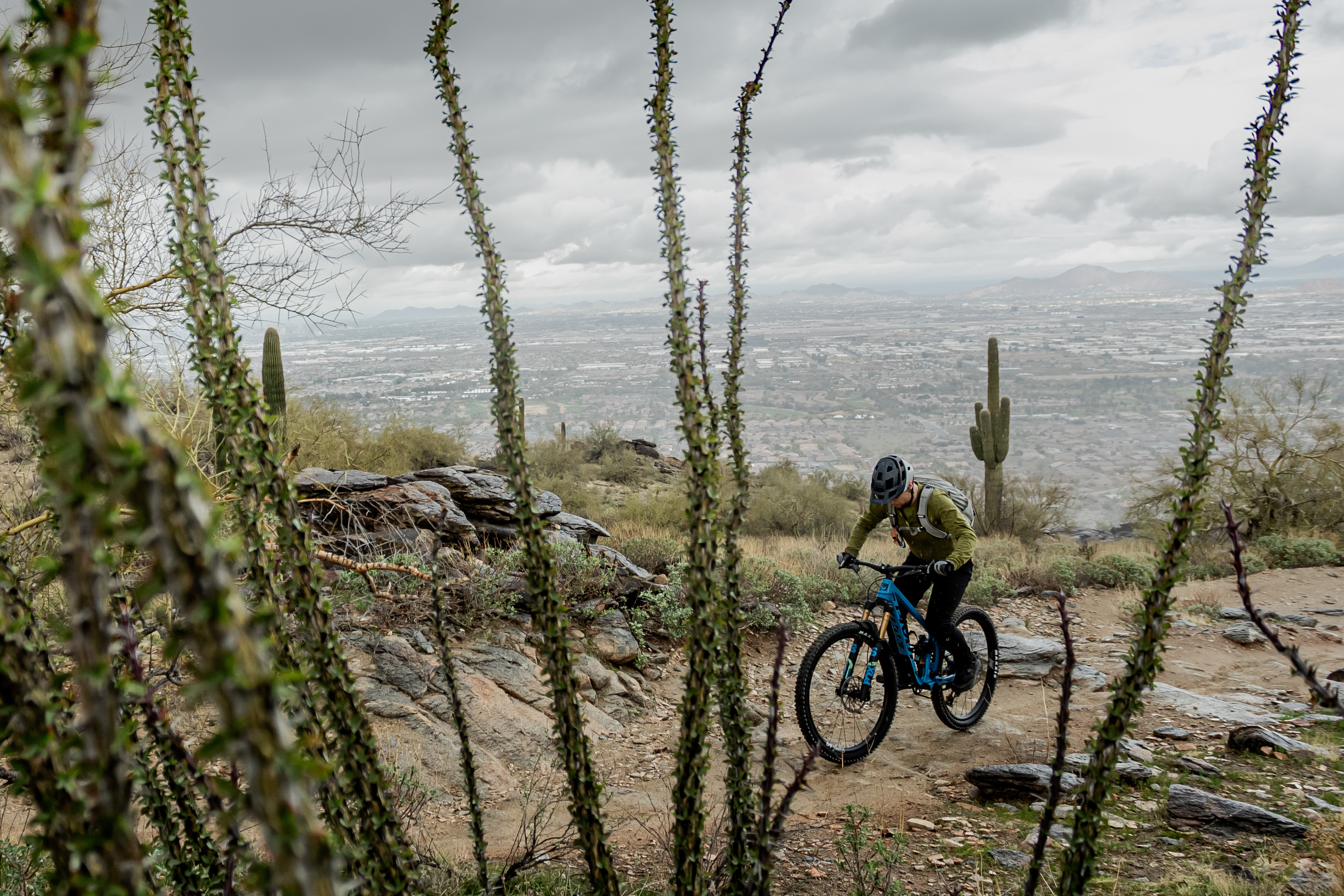
From my first impressions (which, in typical Pivot fashion, came before we were told anything about the new bike), the seat tube angle (STA) felt noticeably steeper than the prior version. It turns out it’s 1º steeper, but it felt like more to me.
The size medium STA felt steeper than the Yeti SB120 I’ve been riding, but both have an effective STA of 76.5º on paper. The STA is steep, but I’m also on the small side of a medium frame. This meant my effective seat tube angle was steeper than for someone riding a medium with the post extended further.
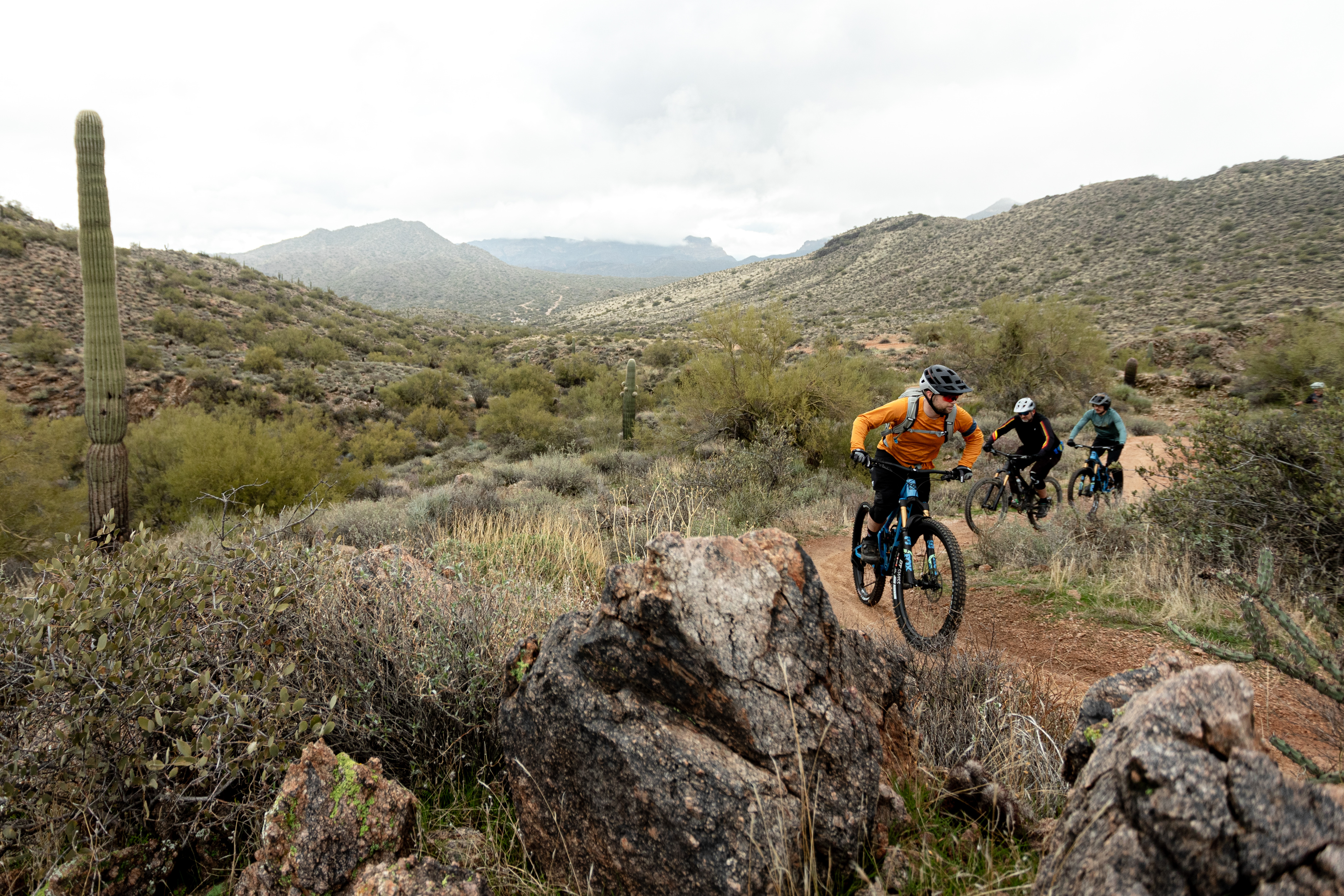
Before long, I had things well dialed, and we had made solid progress up the climb. And that’s when the skies opened up.
It was light at first. Then the rain came and went. But it eventually opened up into a full deluge that transformed the trails into little rivers. Fortunately, the rocky and sandy trails are built to shrug off the occasional downpour, but it did provide us with quite an interesting descent.
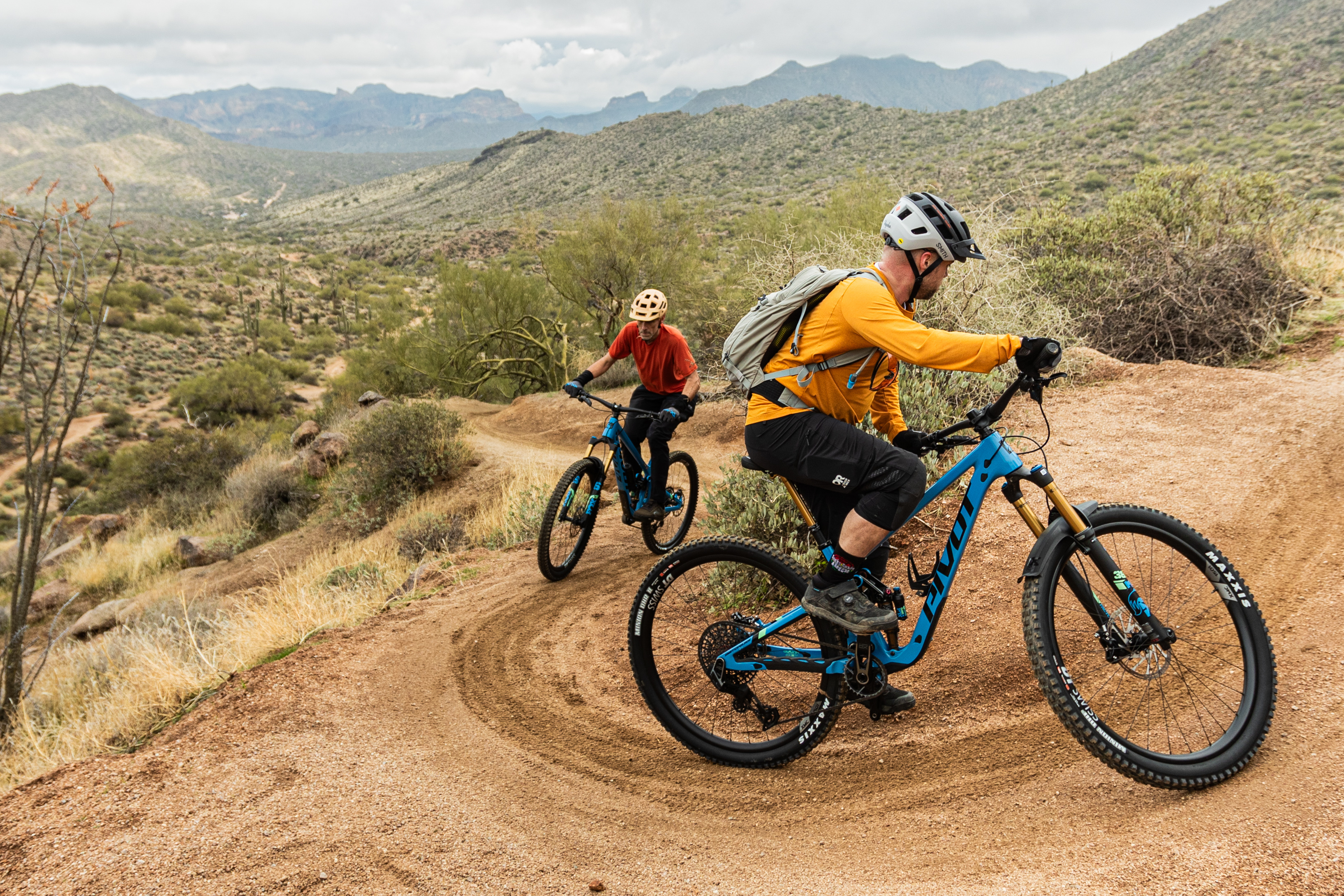
Suddenly, I could no longer see the trail in spots. It was just a string of puddles without indications about how deep they could be. I had just ridden up the trail, so I knew what to expect. But it was still an exercise in quick decision-making while squinting to see through the barrage of water.
The storm didn’t last all that long, but it helped create a lasting impression of the bike. In the moment, forced to resort to my lizard brain, there wasn’t time to think. In that situation, it can go one of two ways on a completely new bike. It can feel completely natural and comfortable, or it could be alien and unsure. The Switchblade was the former.
Second Day in Arizona
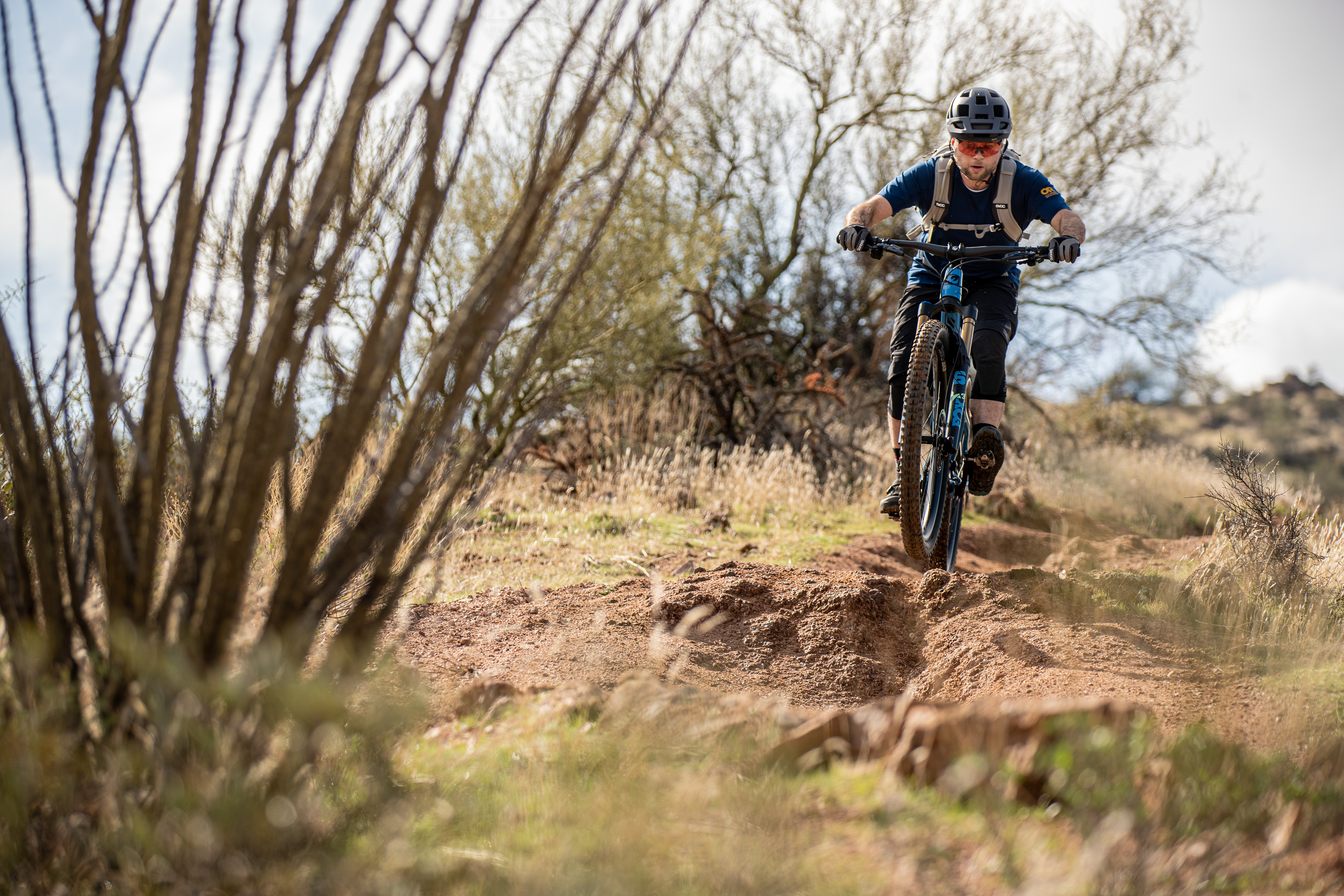
Fortunately, our second ride on the bike was in much better conditions. This time, we headed out to the Hawes trail network for a day of true hero dirt. It was easily the best dirt conditions I’ve ever experienced in the Phoenix area. The ride started on the cold side but finished nearly perfectly under a blue sky.
Thinking was no longer a luxury on this ride, and I focused on how the bike performed. Most noteworthy to me was how well the Switchblade climbed up tight switchbacks. Riding in a group always includes a bit of yo-yoing. Bunching up can be tricky on a tight switchback. Even in those technical situations, the Switchblade remained incredibly poised.
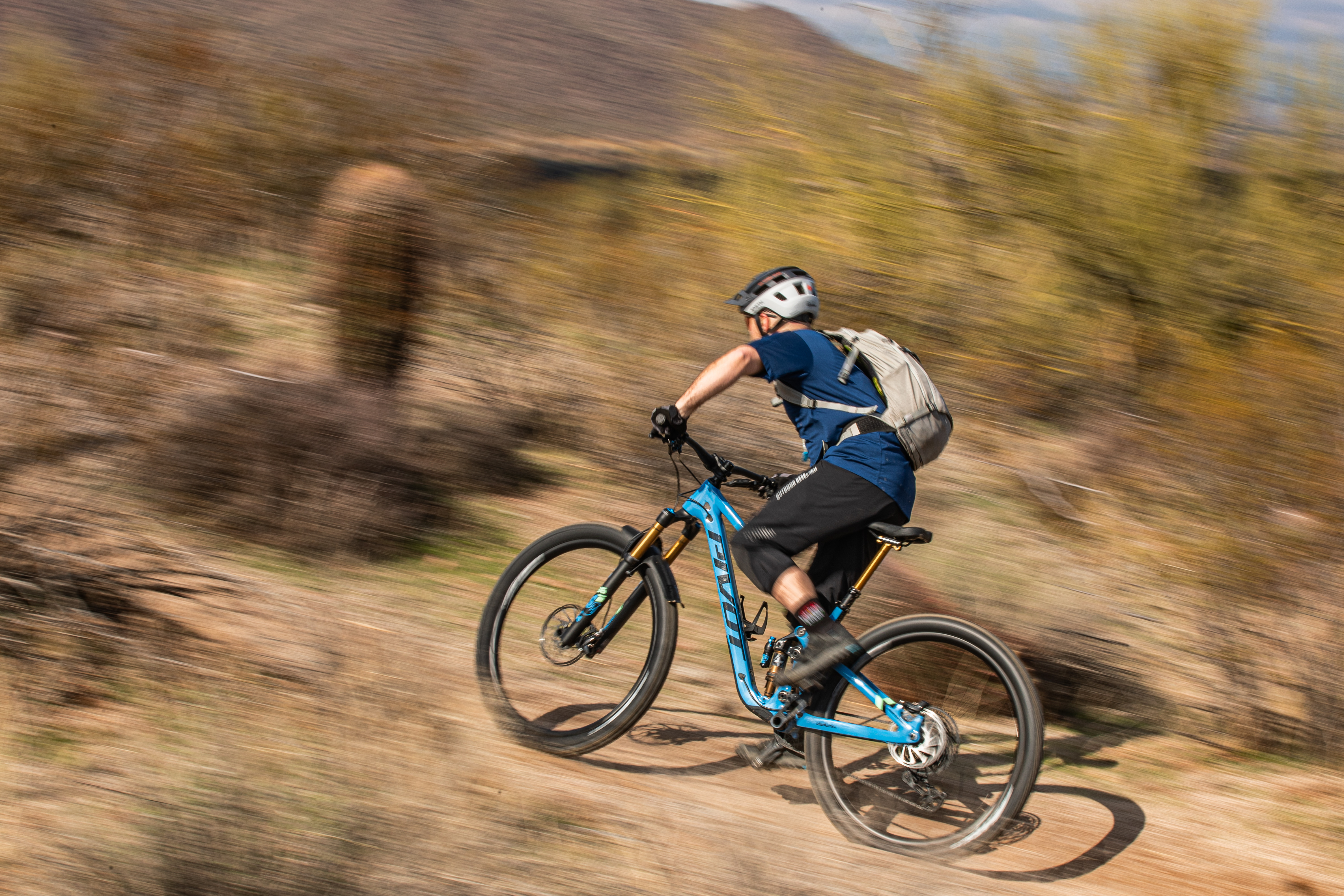
Going slow or fast up the climbs, it didn’t seem to matter. The front wheel seemed unflappable, and the rear wheel really did seem to dig into the terrain, propelling me forward. More than once, I got into situations where I felt a dab was inevitable, only to pedal through and keep going.
With a head tube angle of 65.7º, it’s only 0.3º slacker than the previous generation. But the reach has also increased by 15mm on the medium. The combination made for a sharp handling bike that was still completely confident in awkward tech sections of the trail.
The geometry struck a solid balance for all-around mountain biking, which is what the Switchblade is meant to be. This is supposed to be the one bike for XC missions one day while hitting up the bike park the next.
By the last few long descents of the day, I was feeling more confident on the newest Switchblade than on any of the previous generations. Despite being stiff in all the right places with razor-sharp handling, the newest Switchblade was an incredibly user-friendly bike.
Final Thoughts on the 2024 Pivot Switchblade
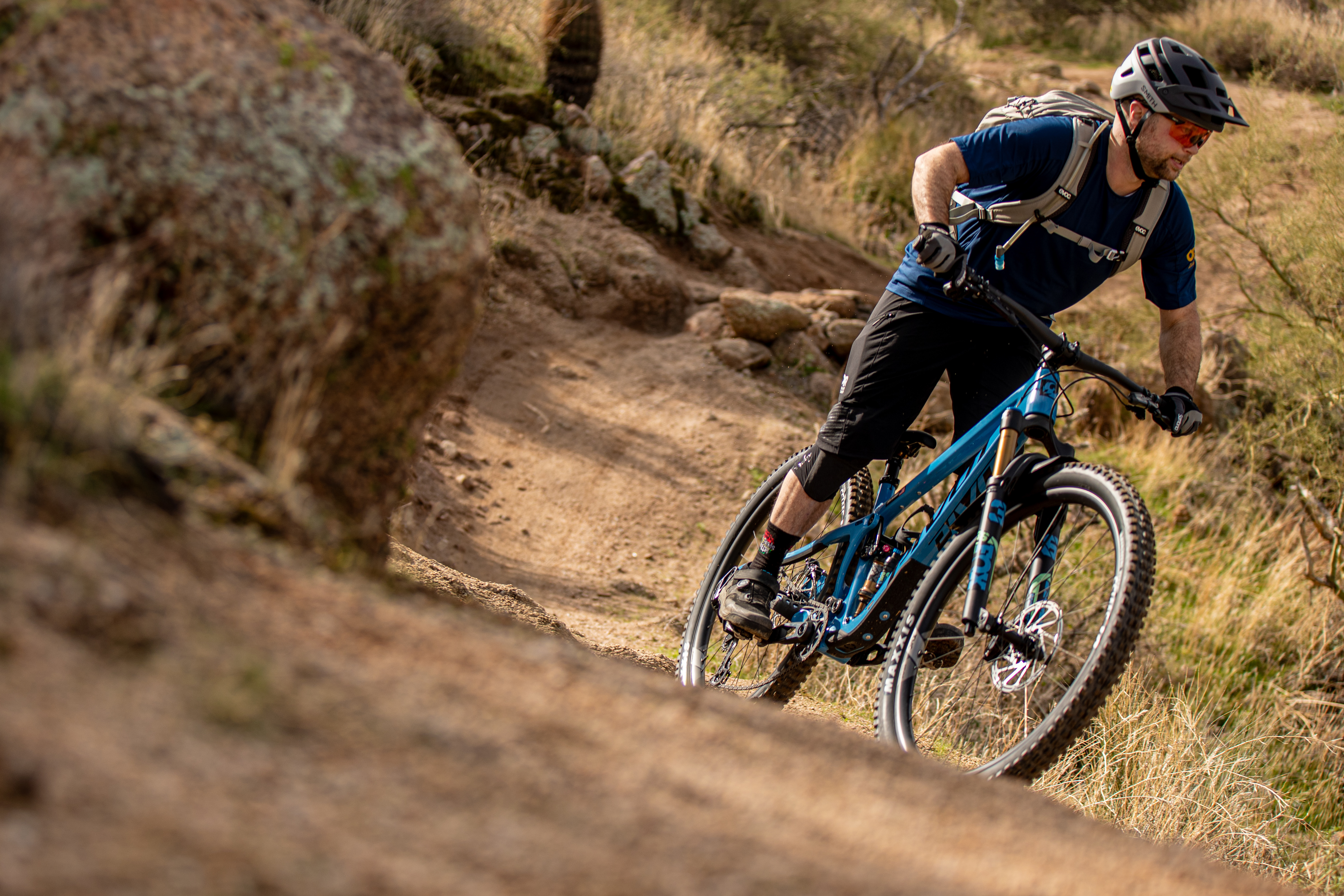
At this point, I’ve ridden all of the past Switchblades, and there is no question that this is the best yet. The lack of internal storage was disappointing, but the Pivot Dock System does give you an additional spot to stash your tools. On the plus side, the frame will easily fit a large water bottle without a special cage.
Ultimately, the new Switchblade isn’t a huge departure from the version Pivot released in 2020. But it has the right updates to keep it competitive. It might not be enough of a change to tempt current Switchblade owners to upgrade, but those who do are surely getting a better bike.
